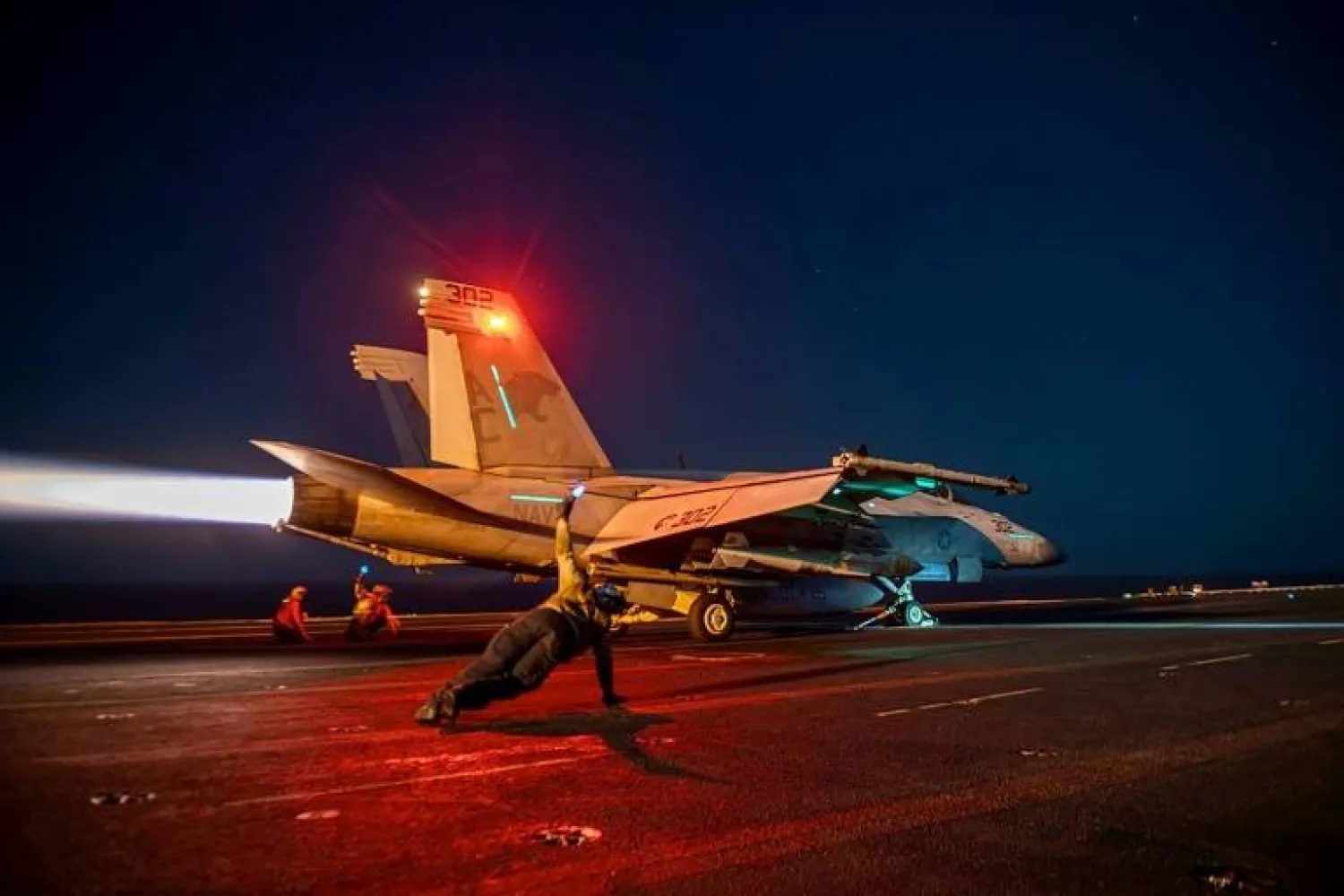US and British forces carried out a fresh wave of strikes Saturday against 18 Houthi targets in Yemen, following weeks of unrelenting attacks on Red Sea shipping by the Iran-backed group.
The strikes "specifically targeted 18 Houthi targets across eight locations in Yemen" including weapons storage facilities, attack drones, air defense systems, radars and a helicopter, a joint statement said.
It was co-signed by Australia, Bahrain, Denmark, Canada, the Netherlands and New Zealand, who gave unspecified "support" to the new round of strikes, the second this month and fourth since the rebels began their attacks on ships in the region.
"The Houthis' now more than 45 attacks on commercial and naval vessels since mid-November constitute a threat to the global economy, as well as regional security and stability, and demand an international response," the statement said.
"The United States will not hesitate to take action, as needed, to defend lives and the free flow of commerce in one of the world's most critical waterways," Pentagon chief Lloyd Austin said in a separate statement after the strikes.
"We will continue to make clear to the Houthis that they will bear the consequences if they do not stop their illegal attacks, which harm Middle Eastern economies, cause environmental damage, and disrupt the delivery of humanitarian aid to Yemen and other countries."
The UK Ministry of Defense said four Royal Air Force Typhoon FGR4s targeted "several very long-range drones, used by the Houthis for both reconnaissance and attack missions," on Saturday, at a site northeast of Sanaa.
Saturday's operation comes after several merchant vessels were struck this week in the region, including the fertilizer-filled Rubymar, whose crew had to abandon ship after it was hit several days ago and began taking on water.
British maritime security agency UKMTO reported another attack on an unspecified ship near the port of Djibouti on Saturday night, saying there had been an "explosion in close proximity to the vessel, no damage is reported to the vessel and there are no injuries to the crew."
"Vessel is proceeding to next port of call," it added in a bulletin.
Apart from the joint operations with Britain, the United States has also carried out unilateral strikes against Houthi positions and weaponry in Yemen, and has downed dozens of missiles and drones in the Red Sea.









